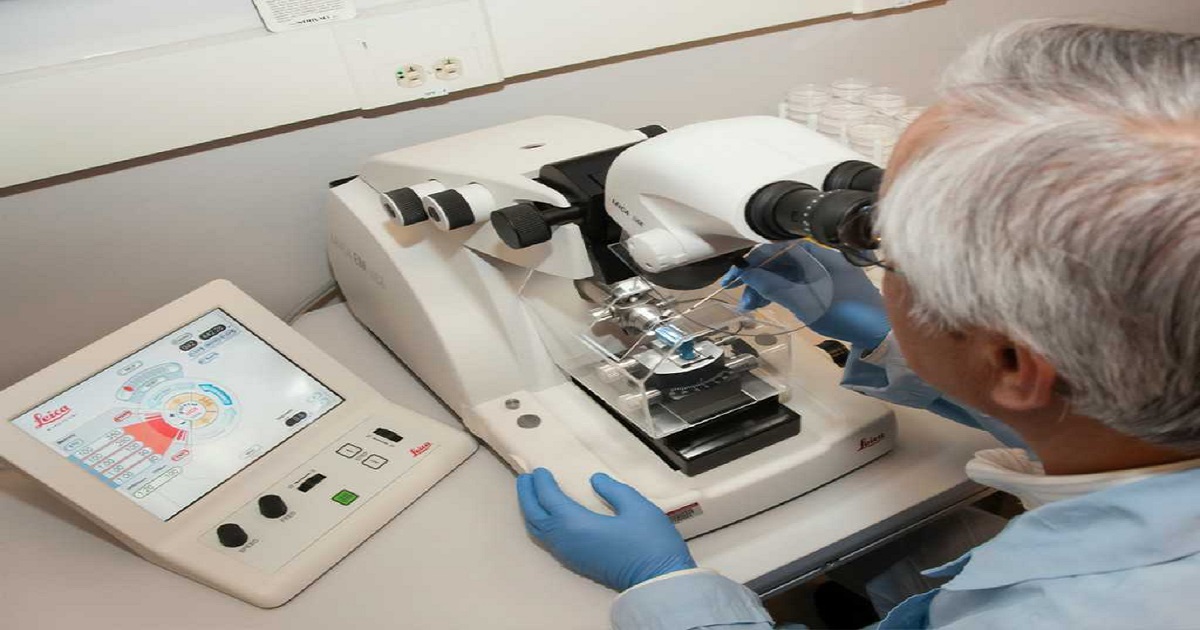
Health Technology, Digital Healthcare
Article | September 7, 2023
Health tech marketers tend to have a real bias problem. Everyone wants to believe that they have the best product available in the market, and are quite vocal about it on social platforms. But, are those the things your buyers want to know about your products?
The biggest mistake you can ever make in health tech marketing is leading it with a technology bias. It will immediately create a distance between your audience and you. If you are working in technology, you can easily assume that everyone knows what you are talking about all the time. You breathe and live your industry. And as the marketer of your company's products, it's your responsibility to go to prospects with your tech company’s message. In your personal life, too, you may talk to your friends and families about your work and realize they have no interest in what you say as they have no idea what you are talking about. That is because they are not immersed in your company or industry.
The same can happen in your health tech marketing process with your prospects and customers. Instead of focusing on their problems, if you lead with your technology solution and features of your products and company, you will lose them. It is vital to step back and see the bias you have in your company’s marketing initiatives.
How Technology Bias Affects Health Tech Marketing
The effects of technology bias in health tech marketing are strongest when the health tech marketer focuses more on technology, product, or company than the buyer's pain points. Customers do not want to know everything about your product. They probably want to know how your product can solve their issues. When approaching buyers with your product, this health tech marketing technology bias can have many adverse effects on the buying process.
Technology bias in health tech marketing will lead to failure to get the customers' trust. They feel you are just trying to sell your product by explaining your product's features rather than solving the customer's issues. Technology bias in health tech marketing also will result in a negative effect on brand performance. As a health tech marketer, you are wrong in assuming you can sell your products by boosting the company or products of the company. It will only result in losing the customer's trust if you are not considering the buyers' problems. If you are going on with the practice, it will eventually affect your brand's performance as buyers view you as not genuine.
This unfair practice of technology bias in health tech marketing will make you realize that you are losing the customers, even the existing ones. No buyer wants to hear more about the features or the technologies used in your products. They are focused on their issues and want to know how your product can solve those issues. Thus, as a health tech marketer, you may have to focus more on the customer pain points when approaching buyers; this will help you convert potential customers into clients.
How to Get Rid of Technology Bias and Improve Health Tech Sales
FPX Digital Transformation Study 2019 says that B2B companies have shifted their focus to customer experience from internal efficiency. Most of the respondents agree that they spend much of their digital transformation funds improving the customer experience.
An important way to implement a buyer-centric or customer-centric marketing approach is to remove bias about your product from your health tech marketing efforts. Mainly, this has to be removed from the messages you send out in the early stages of the buyer journey. However, making it practical is difficult as it is ingrained in how you write, speak, and present your company to external and internal audiences.
Here are some tips to get out of technology bias in health tech marketing and get closer to your customers.
Listen to Customers Clearly
Successful marketers excel not only in communicating but also in listening. It is impossible to create a message about your health tech product if you do not know what problem it can really solve. It will help if you take the time to know your prospects and customers. Do not let your mind wander thinking about which benefits and features you have to push in your health tech marketing. Remain fully present in video, phone, and in-person meetings. That will help you find they have different problems, and you can solve them differently.
When you give importance to listening, you will not waste time and effort solving a problem that you think exists. Instead, you will start developing buyer-centric health tech marketing messages that align with your business.
Don’t Assume Anything
You hate being in a room where people are talking about a subject you know nothing about. Your health tech buyers may have the same experience if you assume your customers know what you do and how they fit into your space.
That’s why it’s essential not to take a “features-first” approach in your marketing interactions. You understand your product's ins and outs, but your prospects don’t and are likely not ready for that. As an effective health tech marketing technique, before you assume anything, give them the complete picture of who you are.
Simplify the Message
A product-driven language full of jargon will make your brand unapproachable for your audience. You can apply the old phrase here, “keep it simple stupid.” You have to position your technology as sophisticated and robust, not convoluted and tricky, through an effective health tech marketing process.
Your health tech marketing content should make sense to people both outside and inside your industry and company. Visitors of your website should not go for additional research to understand what you do precisely. It should be clear from your content. Thus, simplifying your content is essential.
Make Your Customer the Hero
The hero of your health tech marketing story is not you but your customer. After all, your customers in your industry work hard to deliver better service and results to their customers.
Your messages should position you as a mentor for your customers that provides technology support in the job of your customers to drive success. The “customer hero” approach should have a fundamental change in how you speak to your customers. The approach is not fully taken hold in the B2B health tech marketing space so far.
Share Real World Stories
One of the most practical ways to eliminate technology bias from your health tech marketing is to talk more about your customers and less about your products and company. You have to show you have the purpose of bringing in a fundamental change in your industry that enhances the day-to-day business lives of people and not just sell great technology.
Testimonials and customer case studies help a lot in shaping your brand story. Using them, narratives can be created about your customers' journey after and before using your technology. Rather than detailing the benefits and features of technology, narratives highlight the platform's tangible business value for real people in businesses.
Final Word
Technology brings a change in companies, and most people do not accept changes so quickly. It is because the change pushes people to do things differently by moving beyond their comfort zones.
As part of health tech marketing, your job is not to make this change terrifying, but compelling for your buyers. This will happen only when you take your technology out of your head and start focusing on your clients' requirements, problems they face, and what exactly they need from you. It will then surely make you put your product and technology bias aside. And you will be capable of effectively executing your health tech marketing initiatives.
Frequently Asked Questions
How does health tech marketing become effective?
Effective health tech marketing is essential to reach out to potential clients and grab their attention. Health tech marketing becomes effective only when the marketer focuses on the requirements of the clients rather than on the features of the product or company.
What is technology bias in marketing?
Technology bias in marketing is focusing much on your product or technology when you market a technology product to your prospects. Getting rid of this bias will make you attract more clients and successful in your marketing.
How to get rid of technology bias in health tech marketing?
Technology bias in your health tech marketing makes the customers put a distance from you. The best way to get rid of it is to make the customer the hero of your marketing messages by focusing on their issues.
{
"@context": "https://schema.org",
"@type": "FAQPage",
"mainEntity": [{
"@type": "Question",
"name": "How does health tech marketing become effective?",
"acceptedAnswer": {
"@type": "Answer",
"text": "Effective health tech marketing is essential to reach out to potential clients and grab their attention. Health tech marketing becomes effective only when the marketer focuses on the requirements of the clients rather than on the features of the product or company."
}
},{
"@type": "Question",
"name": "What is technology bias in marketing?",
"acceptedAnswer": {
"@type": "Answer",
"text": "Technology bias in marketing is focusing much on your product or technology when you market a technology product to your prospects. Getting rid of this bias will make you attract more clients and successful in your marketing."
}
},{
"@type": "Question",
"name": "How to get rid of technology bias in health tech marketing?",
"acceptedAnswer": {
"@type": "Answer",
"text": "Technology bias in your health tech marketing makes the customers put a distance from you. The best way to get rid of it is to make the customer the hero of your marketing messages by focusing on their issues."
}
}]
}
Read More

Health Technology
Article | September 12, 2023
Combating stress and anxiety can be a major challenge these days, but there are certain behaviors that contribute to those feelings, and you can take action right now to stop them and focus on your wellbeing. By taking a look at the way you react to others, how you practice self-care, and what kind of attitude you approach new tasks with, you can make some positive changes to your lifestyle that affect both your personal and professional lives.
Stop stressing over your current job
Almost everyone experiences job-related stress at some point in their lives, but when those feelings become overwhelming, it may be time to consider your options, according to Zenbusiness.com. Those in corporate positions and high-level management often cope with the most stress or anxiety due to the number of people they have working under them. If you find yourself bringing home feelings of irritability, or if you suffer from insomnia or a lack of focus during the day, take a look at open positions elsewhere and think about how much moving on could help you maintain a higher level of mental health. It can be scary to think about making such a major life change, but you’ll never know what possibilities lie out there if you don’t take a leap.
Stop competing with others
While some competition in the business world is a healthy motivator, other types can leave you feeling terrible about yourself. Rather than comparing your lifestyle or achievements to someone else’s, try to practice gratitude each day by using mindfulness techniques that allow you to focus on your own actions. Focus on your strengths and remind yourself that you’re doing the absolute best you can each day. Make it a point to congratulate others on their achievements, especially your coworkers, and do what you can to build others up. When it comes to social media, remember that the things we share only give a glimpse into the whole story, and that comparing your life to another’s can be detrimental to your mental wellbeing.
Stop ignoring your physical needs
While your mental wellbeing is obviously an important focus, it’s also crucial to think about how you can make sure your body is getting everything it needs. Working a corporate job often means sitting stationary at a desk for long hours, working through lunch hours, or working at home even after you’ve clocked out for the day. Allow yourself to rest by setting boundaries once you’re home, and give yourself the tools to get better sleep by creating an end-of-day routine that will help you relax and prepare to let the workday go. Eat plenty of lean protein and leafy greens to keep your energy up, and make it a point to get up and move around at work. You might also invest in a standing desk, as those come with multiple health advantages for individuals who spend much of the day sitting.
Stop dreading the new week
It can be helpful to set some boundaries where work is concerned, but it’s also important to get organized in order to banish that dread you feel on Monday morning. Facing a busy week can bring on stress and anxiety that leaves you feeling unprepared, but if you take the time to write out a to-do list on Friday, you can jump right in at the beginning of the week without feeling frazzled. It can also help to have something to look forward to, such as promising yourself a little treat once you get a certain amount of work done. Staying productive can be a big help, so if you have time left toward the end of the day and there’s a small task still to be done, don’t let your desire to leave early on a Friday afternoon take over. Finishing up can give you a sense of satisfaction and will keep you from feeling overwhelmed once the new week starts.
Stop saying yes to everything
Another behavior that leads to feeling overwhelmed is saying “yes” to anyone who asks for your time or energy. You may feel that doing so contributes to a helpful, team-oriented atmosphere at work, but it becomes a problem when you take on too much without focusing on your own needs at least part of the time. Learning how to diplomatically say no when you can’t take on any more responsibilities is a form of self-care that can banish stress and allow you to focus on your own needs without feeling guilty.
Letting go of stress, anxiety, and poor health habits can take some time, but by creating some new routines you can learn new habits that help you tackle anything life throws your way. Write down a strategy that encompasses your daily schedule, and get organized both at work and at home for maximum mental health benefits.
Read More

Healthtech Security
Article | November 29, 2023
Introduction
The field of smart wearable devices has advanced significantly in recent years as a result of the advent of mobile medicine, the development of new technologies like smart sensing, and the increased penetration of personalized health concepts.
These Internet of Things (IoT)-based smart devices not only help people pursue a healthier lifestyle, but also offer a constant flow of healthcare data, which can be used for disease diagnosis and treatment, by actively recording, tracking, and monitoring metabolic status and physiological parameters. Wearable technologies have the potential to completely change the ways to monitor health behavior and are increasingly finding clinical implementation for patients with various types of diseases.
Wearable Technology: New Ways of Patient Monitoring
While wearable technology has demonstrated value in the fields of entertainment, fitness, and gaming, it is making inroads into the healthcare industry at a rapid pace. Increasing advancements in sensor technology and artificial intelligence (AI) are assisting millions of people in detecting and managing chronic health conditions and avoiding serious illnesses using devices that are as small as a patch the size of a penny or small enough to be worn on the wrist.
According to a study, nearly 320 million consumer health and wellness wearable devices are estimated to be shipped across the globe in 2022, and the number is likely to surpass 440 million units as a number of new devices come out and more healthcare providers start using them.
Most wearable devices, such as smartwatches, now include heart rate monitors, and some have FDA approval for detecting abnormalities such as atrial fibrillation, a major cause of stroke. As these devices become more intelligent, the percentage of patients and consumers who use them to manage chronic health conditions and diagnose symptoms of serious diseases is likely to rise.
This is expected to assist the sales of wearable devices in healthcare to exceed $195 billion by the end of 2027, presenting huge prospects for healthcare equipment providers and associated companies to benefit from the opportunity.
The Future of Wearable Technology in Healthcare
Though wearable technology is experiencing rapid growth, the field is still considered to be in its nascent stage, presenting massive remunerative prospects for the manufacturers of smart devices, especially in the healthcare industry.
Hence, companies of all kinds, from giants to upstarts, are emphasizing on investing and developing new wearable devices with new features and functionalities to meet the surging demand for wearables across healthcare in coming years.
Read More

Article | April 21, 2020
Artificial Intelligence is here to improve our lives, by not just making things more efficient, but also increasing our lifespan. Companies across industries are experiencing the advantages that come with AI innovation, especially the healthcare space. Throughout human history, we’ve been able to understand the parameters that determine health better, and we’ve developed accompanying technology. With vaccines in the late 1700s, anesthesia and medical imaging in the 1800s, to organ transplant and immunology in the 1900s, healthcare innovation has been on an upward slope.
Read More